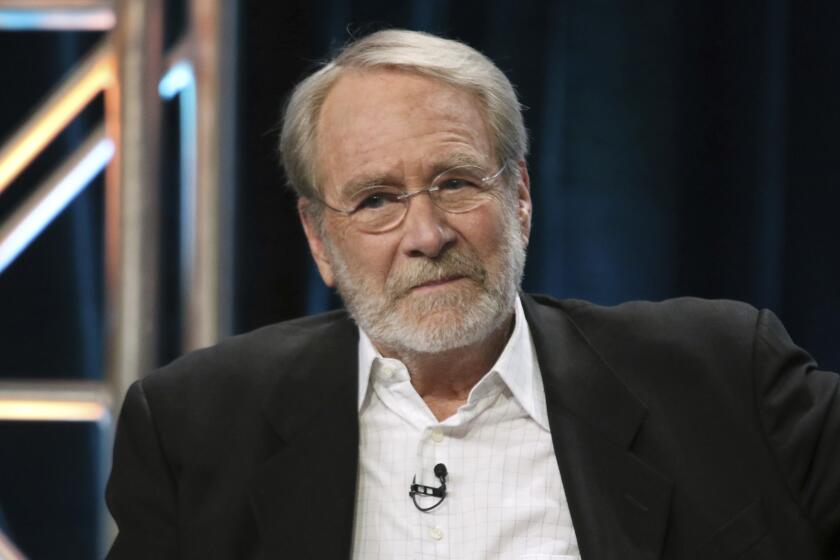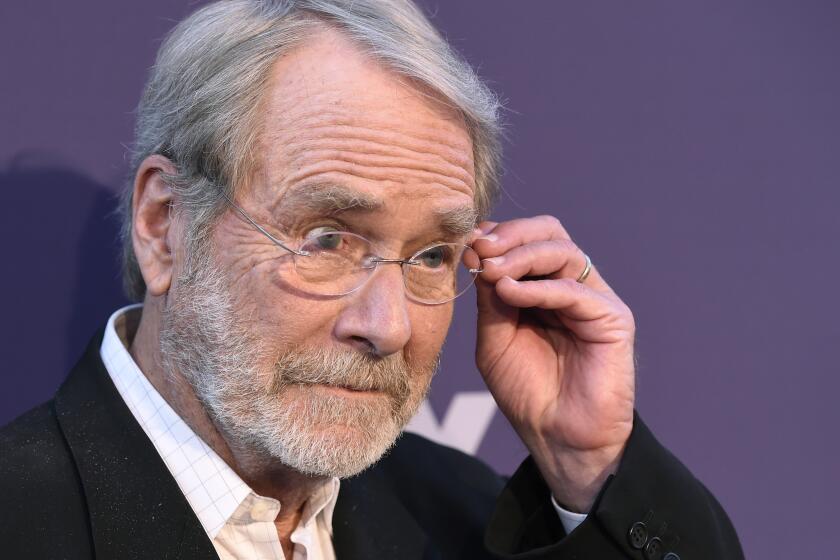Newton Wins NBC Suit and $19-Million Award
A jury Wednesday concluded that NBC television defamed Wayne Newton in 1980 and 1981 broadcasts by linking the entertainer to organized crime figures and awarded Newton $19 million in damages.
The jury decided that NBC knew the series of broadcasts were false and that the network and defendants Brian Ross, a reporter, and Ira Silverman, a producer, intended to injure Newton.
Newton claimed in his suit that he lost millions in earnings and suffered an ulcer because of the broadcasts.
The panel awarded Newton $5 million in punitive damages, $5 million for loss of reputation, $7.9 million for loss of income, $1,146,750 for loss of future income and $225,000 for physical and mental suffering.
The award was by far the largest in a libel case involving news coverage, said Henry Kaufman, counsel for the Libel Resource Defense Council in New York.
The 10-member federal court jury reached its verdict in the sixth day of deliberations after an eight-week trial and six years of legal maneuvering.
“I just want to take this very rare and wonderful moment in my life from me and mine to wish you a very merry Christmas and happy holiday,” Newton said after the verdict.
Newton’s attorney, Morton Galane, refused to let Newton talk further because Newton’s statements could become an issue in the appeal.
“We are delighted with the verdict,” added Galane, who had urged that the jury send a message to the media and National Broadcasting Co. Inc. stockholders by returning a guilty verdict.
NBC attorney Floyd Abrams said Newton won because the trial was held in Las Vegas, where Newton has long been a popular entertainer.
“The community here was not willing to rule against Wayne Newton,” Abrams said.
“A verdict of this size, of this elephantine quantity, could only have an inhibiting effect on the press in this country,” Abrams said. “If this verdict were to be upheld, it would chill investigative reporting throughout the country.”
“I know that Ira and I did the best we could on the story,” Ross said after the verdict. “We stand by it.”
NBC News President Lawrence Grossman said the network will appeal.
“Brian Ross and Ira Silverman are first-rate journalists,” Grossman said. “We are confident that they and NBC News will prevail in a higher court. Now that the trial is over, we look forward to seeing Brian and Ira return to the investigative reporting which they do so well.”
Newton filed suit against the network and the news personnel in mid-1981 after NBC refused to make a correction to its Oct. 6, 1980, “NBC Nightly News” report titled “Wayne Newton and the Law” and two subsequent Ross-Silverman stories on the singer.
The network stories alleged that Newton was less than candid with officials concerning his relationship with reputed New York Gambino crime family associate Guido Penosi.
Newton charged that the reports left viewers with the impression that his purchase of the Aladdin Hotel was financed by organized crime figures. Newton and others testified that the entire purchase was financed by Valley Bank of Nevada and not the mob.
Drop in Earnings Claimed
The reports, according to Newton and attorney Galane, resulted in a severe loss of his business reputation, a drop in his earnings and a decline in his health due to the development of an ulcer.
Newton, who earned more than $8 million annually performing 36 weeks a year in Las Vegas showrooms during the 1970s, said the number of weeks he was hired to perform in the resort city dropped by two-thirds after the stories.
“There was a total absence of institutional conscience (by NBC) as far as Wayne Newton was concerned,” Galane told the jury in closing arguments. “They never dreamed they’d have to face this jury. They never thought they’d have to answer for their motives or their conduct.”
NBC attorney Abrams, in his closing arguments, said Newton had created his own problems by turning to reputed crime figures Penosi and Frank Piccolo for help in halting death threats against his family early in 1980.
He said Newton had not been entirely truthful with gaming investigators about his relationship with Penosi and Piccolo when he sought a state gaming license to buy the troubled Aladdin in 1980. The hotel had been closed three months by gaming officials when he took it over Oct. 1, 1980. Newton has since sold his interest.
The contention that Newton had not been truthful with gaming officials was a cornerstone of the network’s defense in the case.
“It’s not right not to tell the truth,” Abrams told the jury. “It’s worse yet to bring a libel suit against people who do tell the truth.”
Testimony About Penosi
Testimony in the trial showed Newton had turned to Penosi, a man he described as a longtime fan, for help in solving death threats against his family. Penosi turned to his cousin, Piccolo, an East Coast mob boss, for help in halting the threats.
Newton testified that his relationship with Penosi, dating back to 1963, was casual and that he did not know until mid-1980 that Penosi was regarded as a mob figure.
Penosi and Piccolo were indicted in 1981 on charges of trying to extort Newton, entertainer Lola Falana and their business manager, Mark Moreno. Piccolo of New Haven, Conn., was gunned down in 1981 before his trial. Penosi, of Beverly Hills, was acquitted.
The first broadcast said Newton had gone to Penosi for help in solving a problem, but did not mention that it was to halt death threats. The broadcast also said Piccolo was overheard bragging that he was going to have an interest in the Aladdin for helping solve Newton’s problem.
The second broadcast, in November, 1980, touched on the same subjects and covered Newton’s appearance before a federal grand jury in Connecticut investigating Penosi and Piccolo.
The third broadcast, in April 1981, said Newton would be a witness against Penosi and Piccolo in a federal trial. Newton testified that he became a target of mob death threats following the third broadcast.
Galane raised the idea that the broadcasts were designed to curry favor with “Tonight Show” host Johnny Carson, who lost out to Newton in a bid to buy the Aladdin in 1980. He noted a New York Times story that showed Carson accounting for 20% of the network’s pretax profits at the time of the broadcast.
More to Read
The biggest entertainment stories
Get our big stories about Hollywood, film, television, music, arts, culture and more right in your inbox as soon as they publish.
You may occasionally receive promotional content from the Los Angeles Times.






